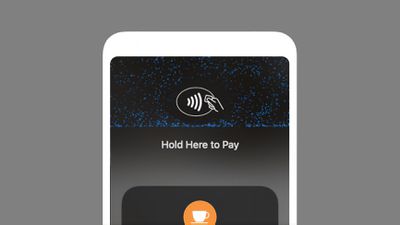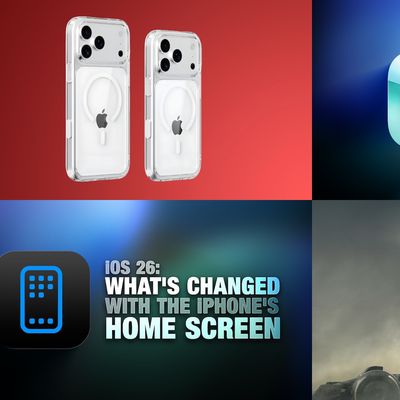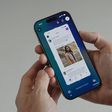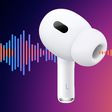iOS 15.4 Beta 2 Adds 'Tap to Pay on iPhone' Framework
The second beta of iOS 15.4 adds code for the new "Tap to Pay" feature that Apple announced this morning. "Tap to Pay on iPhone" is designed to allow NFC-compatible iPhones to accept payments through Apple Pay, contactless credit and debit cards, and other digital wallets, without requiring additional hardware.

Tap to Pay on iPhone is enabled in the latest beta, but it does require third-party providers to add support, so it is not yet available for use. There are no outward-facing signs of it that are visible to end users, but there's a new "PaymentReceived" sound file and images that show off the Tap to Pay interface.
MacRumors contributor Steve Moser has also discovered references to a "ContactlessReaderUIService" in the code, as well as mentions of alerts that end users will see. The feature will support reward passes and refunds.
- iPhone ready to accept a contactless payment.
- Hold your card or device to the seller's iPhone and wait for the success sound.
- To accept contactless payments, turn on NFC and try again.
- The payment timed out for your security. Try again when you are ready to accept a payment.
- Multiple reward passes applied
- Pay %@ %@
- Refund from %@ for %@"
- Try Again & Hold Card Longer
- Use your iPhone to accept payments from contactless credit and debit cards, Apple Pay, or any other contactless payment devices.
The Tap to Pay feature will work with the iPhone XS or later, and will allow supported iOS apps to accept iPhone to iPhone payments. At checkout, a merchant is able to prompt a customer to hold their iPhone, Apple Watch, contactless credit or debit card, or other digital wallet close to the merchant's iPhone to complete a payment over NFC.
Stripe has announced that it will be the first payment platform to offer Tap to Pay on iPhone to business customers, including Shopify users, later this spring. Apple Stores in the U.S. will also roll out support for the feature later this year.
Popular Stories
A new Apple TV is expected to be released later this year, and a handful of new features and changes have been rumored for the device.
Below, we recap what to expect from the next Apple TV, according to rumors.
Rumors
Faster Wi-Fi Support
The next Apple TV will be equipped with Apple's own combined Wi-Fi and Bluetooth chip, according to Bloomberg's Mark Gurman. He said the chip supports ...
Apple will launch its new iPhone 17 series in two months, and the iPhone 17 Pro models are expected to get a new design for the rear casing and the camera area. But more significant changes to the lineup are not expected until next year, when the iPhone 18 models arrive.
If you're thinking of trading in your iPhone for this year's latest, consider the following features rumored to be coming...
Apple's next-generation iPhone 17 Pro and iPhone 17 Pro Max are only two months away, and there are plenty of rumors about the devices.
Below, we recap key changes rumored for the iPhone 17 Pro models.
Latest Rumors
These rumors surfaced in June and July:A redesigned Dynamic Island: It has been rumored that all iPhone 17 models will have a redesigned Dynamic Island interface — it might ...
The long wait for an Apple Watch Ultra 3 is nearly over, and a handful of new features and changes have been rumored for the device.
Below, we recap what to expect from the Apple Watch Ultra 3:Satellite connectivity for sending and receiving text messages when Wi-Fi and cellular coverage is unavailable
5G support, up from LTE on the Apple Watch Ultra 2
Likely a wide-angle OLED display that ...
iPhone 17 Pro and iPhone 17 Pro Max models with displays made by BOE will be sold exclusively in China, according to a new report.
Last week, it emerged that Chinese display manufacturer BOE was aggressively ramping up its OLED production capacity for future iPhone models as part of a plan to recapture a major role in Apple's supply chain.
Now, tech news aggregator Jukan Choi reports...
The iOS 26 public beta release is quickly approaching, while developers have recently gotten their hands on a third round of betas that has seen Apple continue to tweak features, design, and functionality.
We're also continuing to hear rumors about the iPhone 17 lineup that is now just about right around the corner, while Apple's latest big-budget film appears to be taking off, so read on...




















